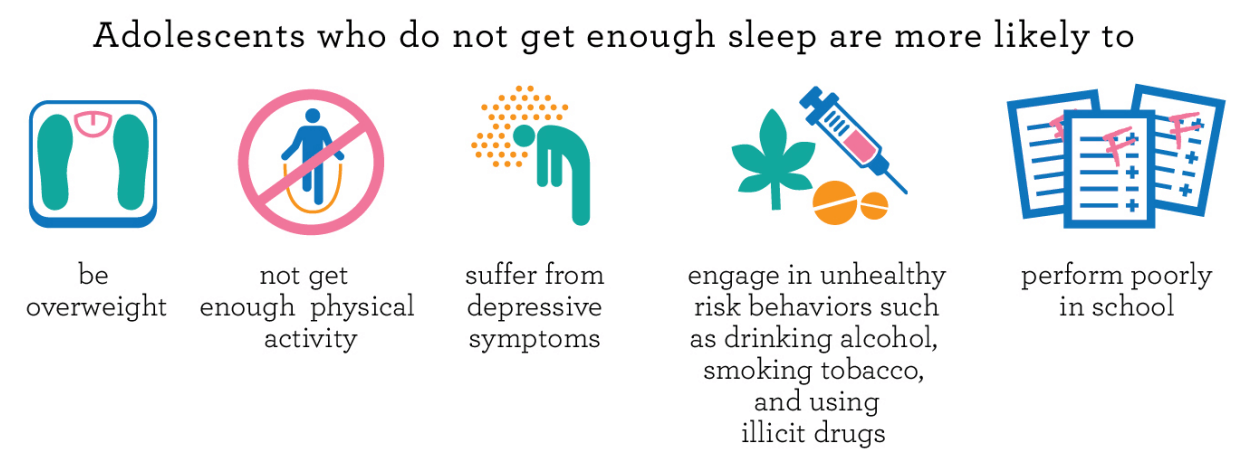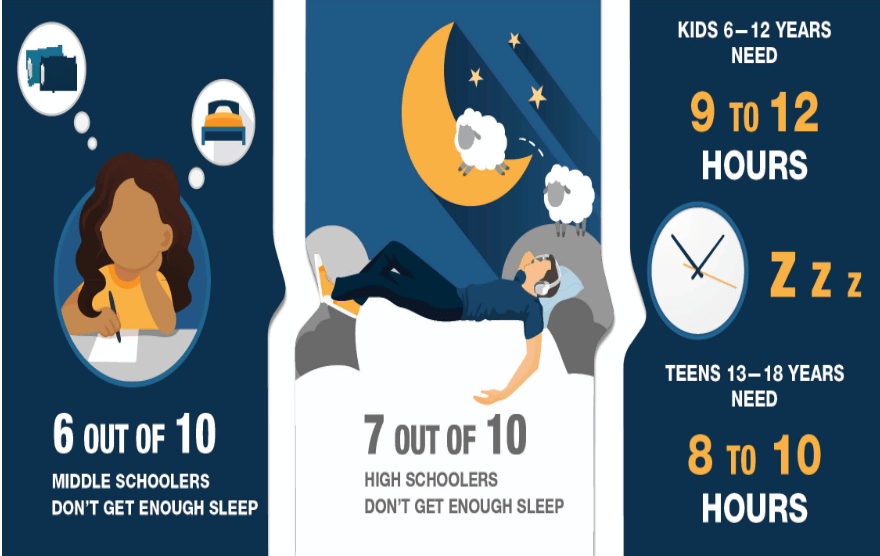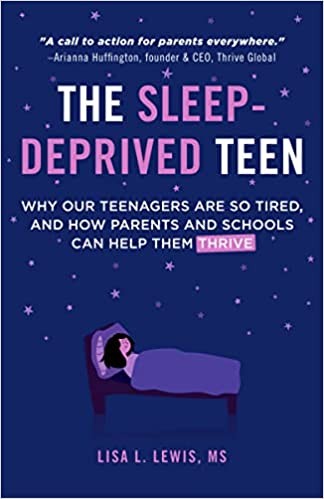How parents changed school start time in California

Time for change
This year, California became the first state in the nation to require later school start times for high school and middle schools. Before the law became effective on July 1, 2022, local school districts could choose how early to start, say, 7 am. Now middle schools can’t start before 8 am and high schools before 8:30 am.
The law was passed because early school start times create significant health and academic risks for teens.
Early school start times created a teen health crisis
The movement for change began in 2016 with an op-ed in the Los Angeles Times by a parent and writer, Lisa Lewis. Her local high school in southern California started at 7:30 and she could see her son struggling to wake up each morning. He came home exhausted every afternoon.
Alarmed, Lisa dug in and discovered that early start times create serious health problems throughout California and the country.
The scientific research revealed a menu of scary data related to early start times that eventually woke up the parent community. The list includes mental health issues and suicide, traffic accidents, sports injuries, poor academic performance, and more.
The American Academy of Pediatrics found that schools were starting too early for the health and academic success of teens. The finding demanded later school start times. As a matter of health, middle schools and high schools should start no earlier than 8:30 a.m.

A survey by the Center For Disease Control underscored the need for policy action: it showed that more than three-fourths of the nation’s middle and high schools started earlier than the recommended 8:30 a.m. start time.

Later school start time bill introduced
Lisa’s op-ed, “Why school should start later in the day”, caught the eye of Senator Anthony Portantino. In 2017, he introduced a bill calling for the start times recommended by the American Academy of Pediatrics.
And presto, the legislature stood up and cheered, education organizations like the California Teachers Association joined the movement, and the Governor signed the legislation. Right?
Not even close.
It took three years of advocacy by parents and sleep experts to get the bill across the finish line.
- The first year, there were not enough votes to get it passed in the legislature.
- The second year, Governor Brown vetoed the legislation, citing the opposition of the teachers and school boards.
- The third year, the California State PTA made the bill its top priority and it was signed into law by Governor Newsom. It is now law.
Know the facts. Teen sleep: simplified
The biggest challenge: most people, including legislators, simply did not understand the science of sleep and the dangers of too little sleep. Just telling teens to go to bed earlier does not work. Their bodies are hard-wired with different sleep patterns by circadian rhythms that don’t listen to the admonitions of parents.
According to the Sleep Foundation, “Circadian rhythms are 24-hour cycles that are part of the body’s internal clock, running in the background to carry out essential functions and processes. One of the most important and well-known circadian rhythms is the sleep-wake cycle… This master clock is directly influenced by environmental cues, especially light, which is why circadian rhythms are tied to the cycle of day and night.”
Now YOU know.
Teen circadian rhythms mean they usually don’t fall asleep until between 11 and 12 at night. They need 8 to 10 hours of sleep.
Do the math. There is no way a teen can get enough sleep and be at school at 7:30.
Parents from Start School Later CA compiled a BIG book, literally several inches thick, containing the scientific research on teen sleep, that was distributed widely to legislators and parents.
California State PTA supports later school start times
One of the first things Senator Portantino did after introducing the bill was to reach out to the PTA. Then he accepted friendly amendments to the language in the bill to clarify and improve it. The state PTA recommended giving school districts a three-year “heads up” to allow time to adjust to the change. The bill passed in 2019 but would not go into effect until July 2022.
The PTA also requested that the bill clarify the official school start time did not include a zero period, the time students choose to participate in a school activity before the required start of school. This is frequently something like band practice or an optional class. (One legislator dove into a detailed discussion of zero period because he wanted to protect early morning surfing! You can’t make this up.) A school district is allowed to have an optional zero-period class or activity before the official start of the school day for a limited number of students. This does not count towards computing attendance.
Advocacy campaign for later school start times
Undaunted by failing to get the bill passed in the first legislative attempts, the California State PTA doubled down on its support. It joined with Start School Later, a non-profit organization, to co-sponsor SB328, and made changing school start time PTAs highest legislative priority. With hundreds of thousands of members throughout the state, PTA had the parent power to personally reach key legislators. To persuade legislators and the Governor, the PTA created a campaign to support later school start times:
|
The PTA campaign to change school start times |
|
|---|---|
|
Training |
Through email, conferences, and conventions, PTA members learned how sleep deprivation hurts teens and why starting school later is important. |
|
Personal outreach |
PTA members throughout California contacted and visited their Senators and Assembly members in their home districts. (Legislators needed to know their own constituents support this.) |
|
Communication |
A social media campaign kept legislators and PTA members informed every step of the way. |
|
Respect |
Some of the opponents of the bill—teachers and school boards— are valued friends of the PTA. Everyone was reminded to base PTA support on the extensive scientific research of the benefits of later school start time and treat our friends with respect. |
PTA leaders prepared parents for visits with their local legislators and listened as parents practiced their personal stories of why later school times are important. They met with key legislators at the state capital in anticipation of committee votes. As key votes were underway, PTA reinforced its support. One legislator publicly announced support for the bill on the floor because the PTA had just contacted him.
Third time’s a charm
The mobilization of parents throughout California helped get later school start time passed into law. Parents know they need to be persistent in getting their children up, ready for school, and out the door. They used that same kind of persistence to remind their legislators of the serious academic and health risks of early school start time. The bill finally became law in its third legislative effort.
Lessons learned
Parents make a difference. The parents were all volunteers motivated by the belief that they could improve the health and academic success of children. This was not led by a team of paid lobbyists or financed by bundles of dark money. Real stories and real facts and real research make a difference.
Teamwork Matters. It took a combination of parents and medical sleep experts to convince the legislators and the Governor to support later school start times.
Expect Opposition. No matter how convinced you are of your position, anticipate opposition. This issue split education advocates that usually work together into opposing camps. Teachers and school board members on one side and parents on the other. Recognize there are honest differences of opinion.
Be ready to compromise for the good of the cause. Even though the American Academy of Pediatrics recommended an 8:30 start time for both middle school and high school, the final law has middle school starting at 8 am. That was a compromise to pass the legislation.
Serendipity helps, a lot. No one knew that there would be a pandemic and a mental health crisis and that the benefits of longer teen sleep would kick in just when our students need it the most.
The fight is not over. Inspired by the lead of California parents, other states are now considering changing their school start times, too.
Para ayudar a más padres a entender por qué el sueño de los adolescentes debe ser tratado como un tema importante, Lisa tiene ahora un libro para padres y responsables políticos.
Tags on this post
All Tags
A-G requirements Absences Accountability Accreditation Achievement gap Administrators After school Algebra API Arts Assessment At-risk students Attendance Beacon links Bilingual education Bonds Brain Brown Act Budgets Bullying Burbank Business Career Carol Dweck Categorical funds Catholic schools Certification CHAMP Change Character Education Chart Charter schools Civics Class size CMOs Collective bargaining College Common core Community schools Contest Continuous Improvement Cost of education Counselors Creativity Crossword CSBA CTA Dashboard Data Dialogue District boundaries Districts Diversity Drawing DREAM Act Dyslexia EACH Early childhood Economic growth EdPrezi EdSource EdTech Education foundations Effort Election English learners Equity ESSA Ethnic studies Ethnic studies Evaluation rubric Expanded Learning Facilities Fake News Federal Federal policy Funding Gifted Graduation rates Grit Health Help Wanted History Home schools Homeless students Homework Hours of opportunity Humanities Independence Day Indignation Infrastructure Initiatives International Jargon Khan Academy Kindergarten LCAP LCFF Leaderboard Leadership Learning Litigation Lobbyists Local control Local funding Local governance Lottery Magnet schools Map Math Media Mental Health Mindfulness Mindset Myth Myths NAEP National comparisons NCLB Nutrition Pandemic Parcel taxes Parent Engagement Parent Leader Guide Parents peanut butter Pedagogy Pensions personalized Philanthropy PISA Planning Policy Politics population Poverty Preschool Prezi Private schools Prize Project-based learning Prop 13 Prop 98 Property taxes PTA Purpose of education puzzle Quality Race Rating Schools Reading Recruiting teachers Reform Religious education Religious schools Research Retaining teachers Rigor School board School choice School Climate School Closures Science Serrano vs Priest Sex Ed Site Map Sleep Social-emotional learning Song Special ed Spending SPSA Standards Strike STRS Student motivation Student voice Success Suicide Summer Superintendent Suspensions Talent Teacher pay Teacher shortage Teachers Technology Technology in education Template Test scores Tests Time in school Time on task Trump Undocumented Unions Universal education Vaccination Values Vaping Video Volunteering Volunteers Vote Vouchers Winners Year in ReviewSharing is caring!
Password Reset
Search all lesson and blog content here.
Login with Email
We will send your Login Link to your email
address. Click on the link and you will be
logged into Ed100. No more passwords to
remember!















Questions & Comments
To comment or reply, please sign in .
Carol Kocivar July 25, 2022 at 1:12 pm
Carol Kocivar July 25, 2022 at 1:12 pm
Kristina Rogstad (HH) July 18, 2022 at 12:10 pm
Albert Stroberg July 18, 2022 at 10:15 am
Carol Kocivar July 18, 2022 at 4:30 pm
Albert Stroberg July 25, 2022 at 11:10 am